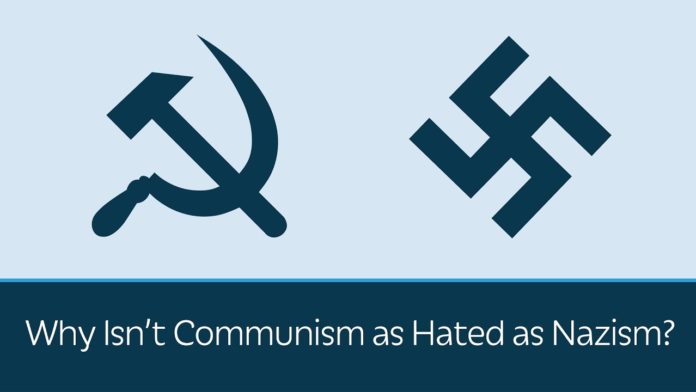Reason #5 this video by Prager University gives for Communism not having as bad a name as Nazism is that “‘world opinion’ … deems the murder of members of one’s own group far less noteworthy than the murder of outsiders.”
This made me wonder why.
To murder people outside one’s own group is far more noteworthy in “world opinion” because it automatically involves others outside that group. It becomes everyone’s problem – there is no ignoring the murder as the problem of that country or that people group. The murder of those outside one’s group may be a manifestation of racism, xenophobia, or any of those -phobia terms so over-used by the media (though it may not be).
But the murder of one’s own group is a greater moral crime, whether or not “world opinion” considers it so. C.S. Lewis, in talking about the similarities between moral systems, makes the point that they are, essentially, broader or narrower scopes of applying the natural moral law:
“Men have differed as regards what people you ought to be unselfish to – whether is was only your own family, or your fellow countrymen, or everyone. But they have always agreed that you ought not to put yourself first.”(C.S. Lewis, Mere Christianity, Part 1 Chapter 1)
Loyalty and unselfishness are always expected, at least to those closest to you, and possibly to those further afield.
Lewis did not emphasise the differences, but his example does illustrate a kind of minimum expectation of loyalty to one’s immediate circle. Thus the natural moral law Lewis spoke of implies that the closer the victim is to the perpetrator, the greater the crime. This is obvious on a personal level: if a friend were to say something callous to you, you would be more offended than if a stranger had said the same thing.
The murder of members of one’s own group, which the video points out is less noteworthy to the world, is a worse moral crime because of the loyalty each member of that group is expected to have towards all other members. On the scale of a country, a government is expected to protect its citizens, but it has less of a duty to protect the citizens of other countries.
In this age of high-speed travel and instant communication, where friendships can form without ever meeting in person, one’s own groups of each level can be harder to define, but I believe most of our loyalties are still where they were a few generations ago: our family, our friends and beneficiaries, our country, and then the whole world.










